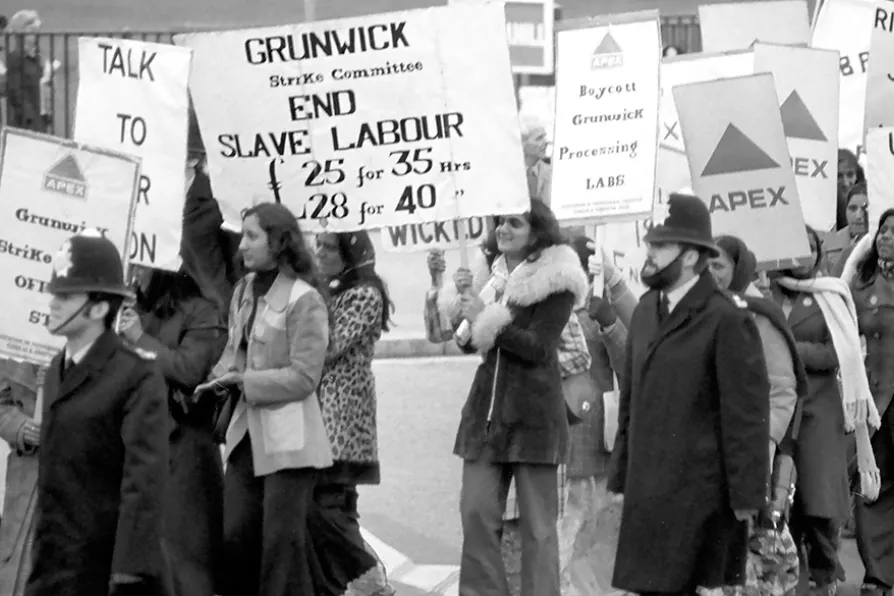Corbyn’s intervention exposes a corrupted system, writes CLAUDIA WEBBE

 Grunwick strikers en-route to the House of Commons to lobby MPs prior to presenting a petition to the prime minister James Callaghan
Grunwick strikers en-route to the House of Commons to lobby MPs prior to presenting a petition to the prime minister James Callaghan
THERE is an old joke on the left that every socialist newspaper is guaranteed at least two subscriptions. Both from the security services. They need two copies because they need each side of the page for their scrapbook.
Looking through the very large file of papers I got under freedom of information on the 1977 Grunwick strike shows the Home Office and Special Branch were avid readers of the Morning Star.
We now know the Home Office relied heavily on undercover officers who spent years infiltrating left-wing groups.

Forty years on, TONY DUBBINS revisits the Wapping dispute to argue that Murdoch’s real aim was union-busting – enabled by Thatcherite laws, police violence, compliant unions and a complicit media

Since 2023, Strike Map has evolved from digital mapping at a national level to organising ‘mega pickets’ — we believe that mass solidarity with localised disputes prepares the ground for future national action, writes HENRY FOWLER













